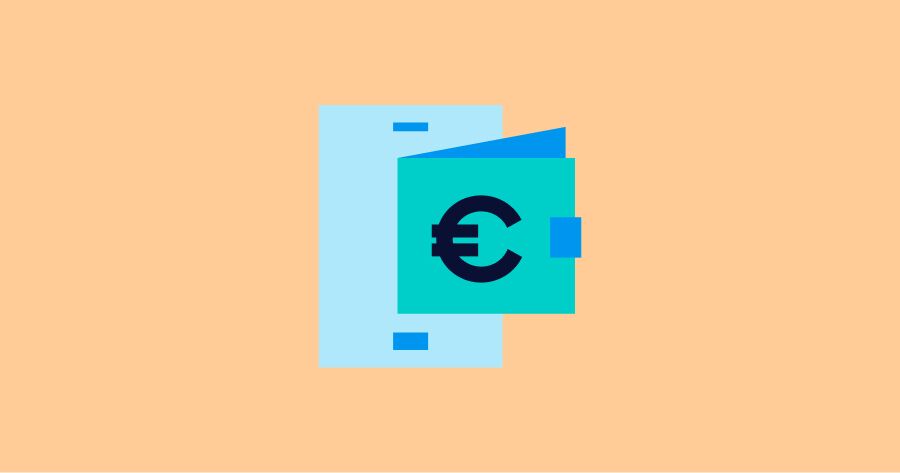In this article we share a few key points you should know about obtaining a Payment or E-money Institution licence in the Netherlands and how this jurisdiction differs from others.
The Dutch regulator (De Nederlandsche Bank, DNB) is one of the most active in the EEA in terms of the number of payment institution (PI) and e-money institution (EMI) licences that is issues. In 2021, the regulator issued 14 PI and EMI licences, more than any other EEA country including Lithuania. In total, now (as of 22 June, 2022) 74 payment institutions and 11 electronic money institutions are authorised by the Dutch regulator.
Relatively short time to obtain a Payment or E-money Institution licence in the Netherlands
In most European jurisdictions, the term for obtaining a licence is from 12 to 15 months, but the Dutch regulator issues licences more quickly. Anticipating a period of 9 months is realistic, and 6 months is potentially possible. Only Sweden compares with the Netherlands in this parameter.
Low requirements for a local presence
In recent years, one of the trends in the field of licensing is a constant increase in the requirements for a local presence by companies applying for the licence. Regulators do not want to give licences to those companies where the country of authorisation will be only a jurisdiction for registering as a legal entity, while the team, business and clients are located elsewhere than the place of domicile.
For the most part, regulators want the majority of the company’s executive team to be located in the country where the licence is obtained, and they expect the company’s work to start being carried out in the local market. For example, since January 2022, the Irish regulator requires a company give the names of at least seven or eight directors and key employees at the time of the licence application, all of whom must be residents of Ireland.
The Dutch regulator is currently on of the friendliest towards international teams. You can apply with only two local directors, with the rest of the team located in other countries of the European region, or even partially outside of Europe.
Documents for a Payment or E-money Institution licence in the Netherlands can be submitted in English
In this regard, the Netherlands does not differ radically from jurisdictions such as Spain or Sweden, although in the case of the latter, part of the documents must still be prepared in the local language. In the Netherlands, the vast majority of documents can be submitted in English.
It is better to pay the authorised capital immediately
In most European jurisdictions, the minimum authorised capital (125k euros for PI and 350k euros for EMI) can be deposited towards the end of the authorisation process, but in the Netherlands we strongly recommend paying it at the very beginning of the process.
Expanded interpretation of Payment Institution licence capabilities
The difference between EMI and PI licences consists in the possibility/impossibility of issuing electronic money. With the PI licence, it is assumed that funds entering the end user’s account (if one is open) will be spent, transferred or withdrawn from the system fairly quickly. On the other hand, the EMI licence allows you to offer end users the possibility to store money in their electronic wallet for a long-term period.
The problem is that the regulators in different countries work out for themselves the position where the boundary between PI and EMI lies. For example, in the case of the Lithuanian regulator, the very fact of opening accounts for end users is a criterion for needing to obtain an EMI, while in Poland almost all types of activities can be carried out under a PI licence.
The Netherlands is among the rare jurisdictions that allows end-users to open accounts and gives them enough freedom to manage their funds under the PI licence.
Accordingly, for most digital banking fintechs, a PI licence will be sufficient to conduct their business. This affects both the timing of the consideration of an application and the amount of the minimum authorised capital: 125k euros instead of 350k euros for an EMI. Obviously, each individual case must be considered separately.
Strict requirements for AML procedures
The Dutch regulator places a great emphasis on all the details of AML procedures and a thorough understanding of the AML-specific target fintech audiences. On the one hand, this can be said of any European regulator; but on the other hand, even against this background, DNB is distinguished by its high requirements.
This does not mean that the Dutch regulator does not want to see fintechs working with clients who have a medium or high risk profile, but in these cases you will have to explain in great detail how you will build a balanced client portfolio, manage the AML-related risks and ensure compliance with the AML laws.
It should be noted that this matter will not be limited to your written procedures: after obtaining the licence, you will also have to comply with them.
High cost of doing business in the Netherlands
The Netherlands is an expensive country. This applies to everything from employee salaries and office rent to lawyer rates. However, this is partly offset by the low requirements for a local presence: you can limit your costs in the Netherlands by maintaining a compact central office and distributing most of the expenses in other countries.
Conclusions:
As with any jurisdiction, the Netherlands has its pros and cons – but in this particular case the pros obviously outweigh the cons.
Among the most important positive features are:
1 – Friendliness to international teams and the low requirement for a local presence;
2 – Short application processing times;
3 – Possibility to carry out most of the operations under a PI licence;
4 – Possibility to apply in English.
Among the things to consider, you should note:
1 – It is recommended to deposit the authorised capital at the very start;
2 – High costs of doing business in the country;
3 – Strict requirements for the alignment of AML work.
About Advapay
Advapay is a provider of Core Banking platform Macrobank and Banking-as-a-Service solutions for Electronic Money and Payment Institutions, such as digital banks, e-wallets, remittance companies, crypto startups and other fintech companies. Currently, the company serves more than 30 financial services companies across the UK and European Economic Area.
Besides the technical infrastructure, the company provides licensing and fintech consulting services, including assistance in building payment infrastructure.








